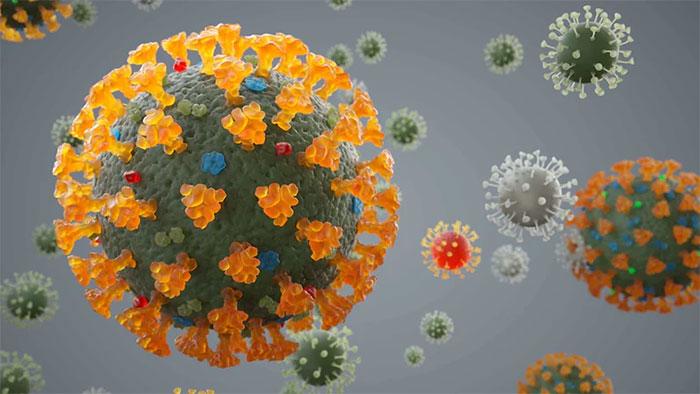The World Health Organization (WHO) has spoken out about the variant of the SARS-CoV-2 virus, known as IHU or B.1.640.2, which was first discovered in France at the end of 2021.
The new variant was officially recorded as having first appeared in France last month, after patients in the Marseille region of southern France began showing symptoms in November. At least 12 cases of the IHU variant are believed to be linked to travel to the African nation of Cameroon. These cases were confirmed after being identified by researchers from the Mediterranean Institute of Infectious Diseases (IHU).

French scientists have discovered a new variant of the SARS-CoV-2 virus.
The IHU variant has 46 mutations, raising concerns among experts that it may evade current vaccines, although this variant does not appear to spread rapidly, especially when compared to the Omicron variant that emerged around the same time and has since spread globally. Information about the IHU variant began to surface at the end of 2021, but it gained significant attention in international media this week after attracting the interest of experts outside France following an article published on December 29.
On January 4, speaking to the press about the IHU variant, Abdi Mahamud, an official from the WHO’s COVID-19 Management Support Team, stated that WHO “has been monitoring” IHU. According to this official, a positive signal is that this variant has not spread quickly. WHO is currently assessing IHU and will only classify it as a “Variant of Concern” (VOC) if it poses a serious risk.
International experts are also considering lowering the risk posed by IHU, with many suggesting that Omicron has overshadowed IHU. According to Dr. Tom Peacock, a virologist at Imperial College London, the fact that IHU appeared before Omicron means that at this time, this new variant is “not overly concerning.”
Research by French scientists indicates that IHU carries the N501Y mutation – first noted in the Alpha variant, and health experts believe this mutation may make the variant more transmissible. Additionally, IHU also has the E484K mutation, which suggests a higher potential for vaccine resistance. In total, IHU has 46 mutations and 37 deletions. Researchers believe this is further evidence that the emergence of variants and their transmissibility from abroad cannot be predicted.
The first IHU infection in France was reported in a man who had received the full primary COVID-19 vaccine series and returned from Cameroon last November.


















































